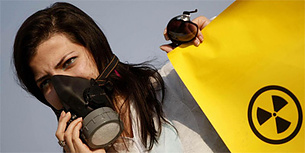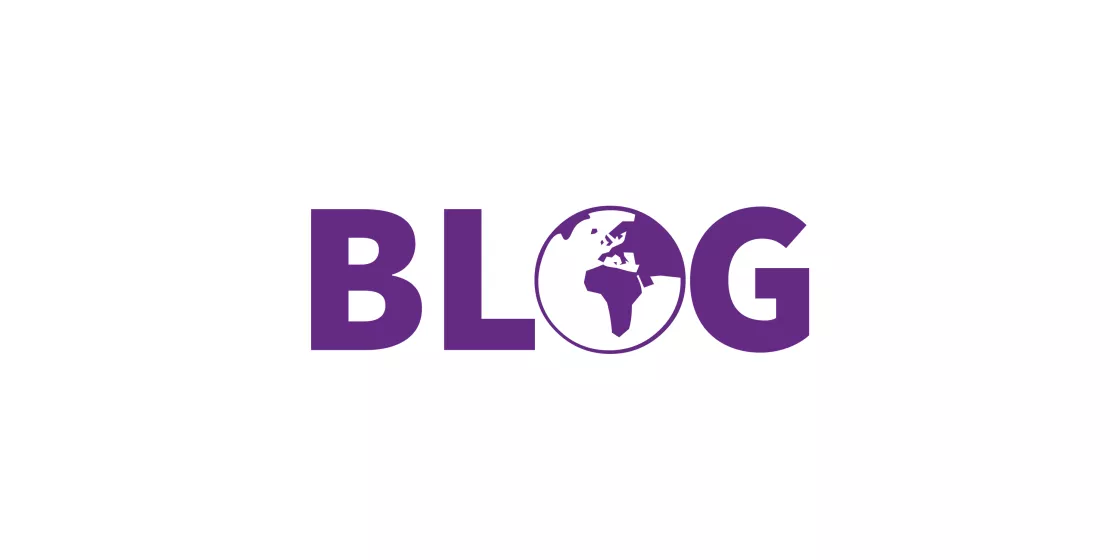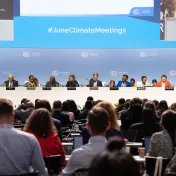Boris Schinke, Senior Advisor Energy and Development, interviewed Safa Al Jayoussi, head of the Climate and Energy campaign of the NGO "Indyact" based in Lebanon and Jordan. She is also the co-coordinator of the Climate Action Network Arab World.
What does climate change mean for Arab countries?
Today the Arab region is not only witnessing wars and political instability, this region is one of the most vulnerable areas when it comes to climate change. Last year Egypt and Jordan witnessed severe floods that led to many deaths while on the other hand Iran, Iraq and other Gulf countries witnessed major heat waves. In addition, climate projections show that in some Arab countries people won't be able to live in the near future due to extreme weather.
What is the Climate Action Network Arab World?
Once COP22 was announced to be in Marrakesh, Morocco, a group of different Arab civil society organizations, Germanwatch, the Friedrich Ebert Foundation and Climate Action Network International (CAN-I) gathered and discussed what they want; they came with the idea of an informal network later called Climate Action Network Arab World which now consists of over 100 NGOs across the Middle East and North Africa (MENA) region. It is a group thriving to do changes across the climate and energy sector in our region.
What is the idea behind founding the Climate Action Network Arab World?
 Throughout the last climate negotiations the politicians representing the Arab group have been moved by short term profit and ignored their people's needs. Civil society's voice in the climate debate was barely noticed in our region. But then came the Arab Spring. During the Arab Spring many civil society organizations in the region were emphasizing environmental justice around water, energy and natural resources as well human rights related to sustainable development as core issues for a new social contract. They also wanted to be heard and engaged meaningfully in decision-making, including climate change and energy policies. At the same time the 18th COP was hosted by Qatar in 2012. This allowed many new alliances and coalitions to be established in our region and gave civil society in our region a new push to urge our Governments to meet both the political dynamics and the environmental movement needs. The Climate Action Network Arab World incorporates this spirit.
Throughout the last climate negotiations the politicians representing the Arab group have been moved by short term profit and ignored their people's needs. Civil society's voice in the climate debate was barely noticed in our region. But then came the Arab Spring. During the Arab Spring many civil society organizations in the region were emphasizing environmental justice around water, energy and natural resources as well human rights related to sustainable development as core issues for a new social contract. They also wanted to be heard and engaged meaningfully in decision-making, including climate change and energy policies. At the same time the 18th COP was hosted by Qatar in 2012. This allowed many new alliances and coalitions to be established in our region and gave civil society in our region a new push to urge our Governments to meet both the political dynamics and the environmental movement needs. The Climate Action Network Arab World incorporates this spirit.
What is your take on having the 22nd COP in Morocco this year?
Just one year after the historical agreement of Paris people now see hope that the political arena can agree on the importance of saving our planet. Having the COP in Morocco this year is very important for MENA countries. Especially since most of MENA Governments currently stand at a crossroads for new electricity policies. While the deployment of renewable energies (REs) is receiving policy support across the region, fossil-fuels - especially coal and natural gas - as well as nuclear power are two prominent alternatives in many countries' development plans. Having a strong civil society voice, therefore, is ever more important now. In particular because the majority of Arab countries are now about to enter into a new era of military repression including restrictions of expression of speech and freedom to do activism.
What are the Arab civil society demands in regards to COP22?
In general, I want to say that Arab countries need to grasp the opportunity of having COP22 in Morocco in order to adopt a green sustainable economy that includes especially increased national renewable energy and efficiency targets, a phase out of fossil fuel subsidies and improved Arab governments’ collaboration, for example in the field of research and development or technology transfer. However, this can only happen if our countries review and increase their Nationally Determined Contributions before 2020.
In regard to our work as the Climate Action Network Arab World, I can additionally say that we have gathered in many occasions this year to formulate specific demands coming out of the Arab region.
Some cornerstones of our demands can be summarized as follows:
- All Arab countries need to ratify the Paris Agreement before COP22;
- As limiting global warming to 1.5°C will require urgent ramping up of pre-2020 action on mitigation, adaptation and means of implementation, Arab countries will need to increase their ambition in these fields;
- All countries including the Arab league need to develop an interim long-term plan to implement the sustainable development goals and forecast economy in a matter that is compatible to 1.5 degrees;
- New South-South cooperation, especially between Arab and African countries is needed to tackle common climate threats and allow for adopting new and viable environmental policies;
- COP22 should give greater clarity on the $100 billion roadmap and should demonstrate how a 50:50 balance between adaptation and mitigation will be achieved.
How do you see the uptake of renewable energy in the Arab region?
Clean technologies are getting cheaper and more innovative. Yet, political leadership is the key to move forward with renewable energy projects. A good example is the year 2014 which witnessed a record number of solar projects awarded in the Middle East. The combined capacity of 294 Megawatts (MW) established just in 2014 means a four-fold increase over the previous seven years combined. By 2050 93% of the electricity produced in Middle East could be from renewable energy sources according to a Greenpeace study. In this scenario new renewables – mainly wind, Photovoltaics, Concentrated Solar Power and geothermal energy – would contribute 86% of the total electricity generation. Already by 2020 the share of renewable electricity production would be 14% and 52% by 2030. Under a more advanced scenario, even 100% electricity supply from renewable energy resources, or around 1,510 gigawatts (GW) installed generation capacity is possible by 2050. Countries like Morocco are leading with renewable energy, hosting the biggest CSP plant in the world, while in Jordan and Morocco mosques and churches are acting as role models in adopting renewable energy. This is why civil society in Arab countries needs to increase its pressure: The movements calling for a 100% Renewable energy future must urge our Governments to increase the political will as it is the key to solve the double challenge of climate and energy.
- Mit Unterstützung durch Brot für die Welt. Für den Inhalt ist alleine Germanwatch verantwortlich. -




